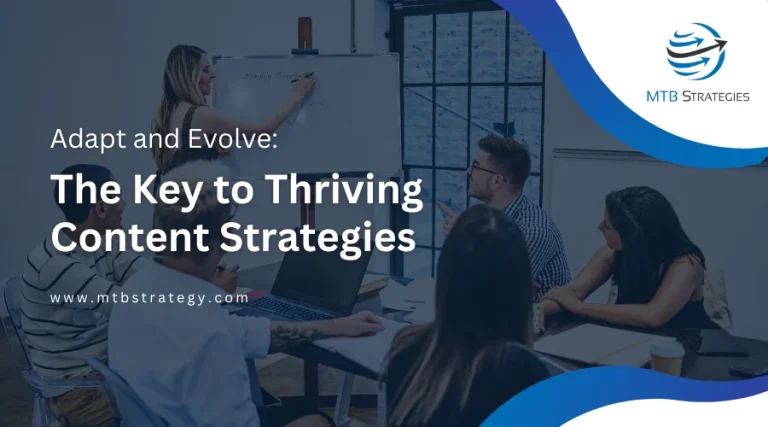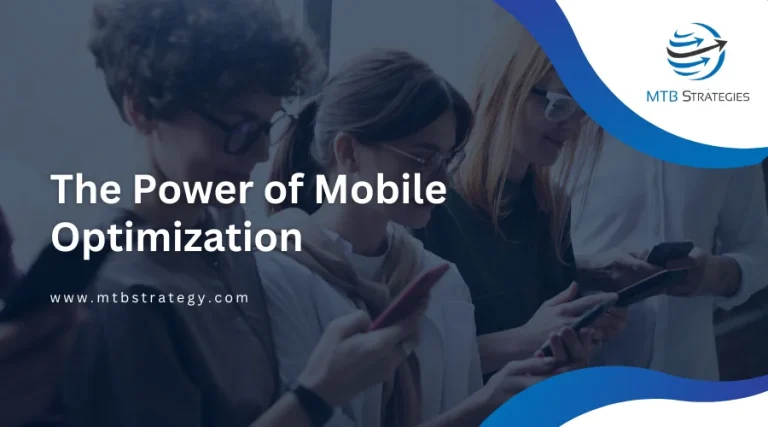Most if not all businesses involved in digital marketing covet the position of being on top of their niche’s search results. It’s a lucrative spot that offers better chances to get noticed and rake in conversion rates, but requires a lot of time, effort, and resources to achieve.
SEO Definition & Types
One of the known methods that help with a website’s ranking is actively engaging and following the rules of “Search Engine Optimization” or SEO that’s further subdivided into three kinds:
Technical SEO
This SEO focuses on the technical aspects and configurations of a website including, but not limited to, domain hosting and registration, HTTPS installation, website loading time, custom pages (e.g. “Error 404” pages, “Thank You!” pages), etc.
On-Page SEO
Layout, design, and content setup are the main coverage of on-page SEO. Things like titles, descriptions, keywords, media, internal links, actual content, etc. are specific examples. Strategies involved with this kind of SEO targets making the website viewer and search engine friendly.
Off-Page SEO
As the term states, off-page or off-site SEO involves optimization efforts done outside the website. Doing activities related to this kind of SEO helps search engines recognize your website, and gives the algorithm ideas on how internet users perceive and interact with it. Backlinks and press releases are examples of off-page SEO.
Importance of Off-Page SEO
Simply put, all three SEO methods are significant factors that can greatly affect a site’s online reputation. But off-page SEO is a bit different than the other two, in that it requires active participation or cooperation of third parties. Because of this, many site owners tend to work on off-page SEO the least and sometimes don’t even put any effort into it, losing the additional traction in the search result ranking.
A website’s Domain Authority (DA) determines where the site ranks in the search engine result pages (SERPs), and improving your off-page SEO is equivalent to boosting its DA.
Any quality backlink (a critical part of off-page SEO) can help label your website as trustworthy, which is what search engines like Google, Yahoo, and Bing prefer, making your chances of ranking first in the SERPs even greater. However, it’s also vital to remember that hundreds of backlinks is not the answer to getting the top spot. In fact, search engines are likely to consider the multiple backlinks as spam and ignore your website altogether. The trick is to have just the right amount of internal and external links, especially backlinks from reputable and already-established websites.
Off-Page SEO Tips for 2021
SEO isn’t something that can be accomplished in one sitting. It’s a continuous and dynamic process, and off-page SEO is the same. Understanding how the algorithm can change sporadically, here are ten updated and useful off-site SEO tips:
#1. Review Your Brand Image
Make your business stand out from the rest! Brainstorm ways to bring your products and services out of mediocrity. If you manage to build a brand that consumers can perceive as unique or one-of-a-kind, then you’re already halfway through having a good-running business.
The goal here is to make a memorable experience, a lasting impression that will keep your brand as the first option in the minds of customers. There’s really no exact formula to it, but you should definitely consider watching over and improving customer service, product design (be original!), active competition, advertising, shipping, and other logistics.
Marketing is not the full definition of a business, it’s an extension that supports your entrepreneurial efforts. So if your brand isn’t turning heads from the start, you may experience difficulty in promoting your business even with off-page SEO and other campaigns.
#2. Build & Maintain Trust
Trust is a vital concept in business. It’s the reason why customers pay for products and services, and the reason why they come back to do it again. Likewise, trust is also an important factor in off-page SEO. It’s not easy to convince internet users to visit your site and to convert the traffic into paying consumers — difficult, but not impossible.
Being transparent about the business is a solid way to build brand trust. That means replying to negative feedback with the utmost professionalism, dealing with the issue without losing face, and offering polite resolutions. Gestures and actions like these show that you care, and can help attract more customers. Another way to show transparency is by sharing behind-the-scenes content on the business’s website, social media accounts, and blogs.
Reacting to customer reviews actually helps with improving a site’s domain and page authority, which in turn aids with search results ranking. Hence, it’s beneficial to get more testimonials not just from the customers, but also from your business partners, manufacturers, and established third-party websites.
#3. Establish Quality Backlinks
Creating backlinks is a popular and effective technique in the virtual market. But as mentioned previously, it’s crucial to understand that getting many and all kinds of external links is not the key for ranking first in the search results. Rather, it’s best to consider quality over quantity and only have enough backlinks from good ranking or known websites.
A good way to build external links is to find broken links in other websites (make sure it’s a high-functioning and credible site). This strategy is commonly known as “broken link building” and the idea is to report the broken link to the website owner and recommend your own link, with similar content, as replacement. Often, this is viewed as a win-win situation since the site owner has less 404 missing page errors and you acquire a shiny new backlink.
#4. Maximize the Use of Social Media
Social networking sites (SNS) like Facebook, Instagram, and Twitter are thriving with potential customers and business partners! As an entrepreneur, it’s only apt to capitalize on this opportunity by either using them as a platform to directly sell your goods or advertise the business.
Having official and active accounts in social media helps with increasing brand awareness and lead generation. Some search engines also consider SNS accounts during ranking.
But here’s the catch. You must always be mindful of your online reputation because this reflects your brand in real life. Always react and answer to online mentions, especially if it’s something that can make or break the business’s identity. Besides, Google search algorithms happen to consider tags and mentions in social platforms as links.
#5. Create Shareable Content
Relatable, useful, and up-to-date content is always much preferable than obsolete info. If you want your website and your business in extension to succeed, you must be willing to consider new and unheard-of marketing techniques such as using memes and hashtags or making infographics and blogs about current issues and events.
The biggest advantage here is free advertising. If your content is relatable, there’s a good chance it will be shared with other people without you having to prompt anyone. Aside from that, shareable content is a productive way to also generate backlinks to your blog post or website.
#6. Interact with Influencers
Forming mutual relationships with influencers is another marketing technique that helps build brand reputation. The usual procedure is to “gift” an influencer with the item or service you want to promote for free and ask them to advertise it for you via their usual channels.
Be sure to do prior research on the influencer to get the most out of the encounter. Some of the questions you may want to consider are as listed:
- Is the item/service you want to promote related to the niche of the influencer?
- Does the influencer have enough followers for the promotion to have an impact?
- Does the influencer have a good online reputation?
- What kind of promotion do you want the influencer to do?
#7. Engage in Guest Posting
Having your content (e.g. blog) posted on another website gives you the chance to link back to your own website. Doing this helps with once again boosting your site’s reputation and spreading brand awareness. Moreso if you manage to get your content posted on a famous site.
#8. Comment on Other Blogs
Blog commenting is an old but still effective off-page SEO strategy to share links in other sites for free. If done correctly, this can assist with driving organic traffic to your website and enhance its SERPs ranking as a result.
Take note that not all websites allow third-party link promotion in their blogs, so remember to ask for proper permission. You also shouldn’t spam the blog sections with your links. Otherwise, the site owner will take action to remove your comments, block you, report you, or worse, the search engine algorithms will mark your website as a full-time spammer.
Another useful tip is not to directly promote your link as it is. Instead, compose a helpful message related to the blog and insert/anchor your link in between. It’s also advisable to use the same technique if you must mention your brand. Don’t use comment signatures (repeated words or actual brand signature) that mark your messages as coming from one source — that’s a one-way ticket to spam-ville.
Links shared through blog comments are mostly set up as “no-follow” links, meaning they’re not included during ranking calculations. But some sites do provide “do-follow” links, so it is still an off-page strategy worth considering.
#9. Post in Forums
This follows the same principle as the previous tip, but instead of blogs, you should comment or share your website links in busy forums like Quora, Yahoo, and Reddit.
With forums, your way of writing should be concise, easy to understand, and helpful. In most cases, very useful comments can be “up’ed” by users, meaning they’ll be brought to the top of the comment list, sometimes even pinned. Making it the first thing a site visitor sees.
#10. Localize the Business
Localizing your business generally means adding it to local business directories such as Google My Business, Yelp, Facebook, LinkedIn Company Directory, etc. This is a quick way to get your brand associated with the big names and makes it easier for people to find you.
Properly done, local listings can assist with enhancing your brand’s reputation and rankings especially in localized search results. Other benefits of virtual directories include:
- Opportunity for more backlinks.
- Spreading brand awareness.
- Enhancing domain authority.
- Gathering reviews and feedback.
- Free marketing to local users (it’s usually free to join directories).
There are a lot of directories online, depending on the location, niche, and other categories. It’s good to be part of many listings but be sure to keep things in moderation since you still have to manage all of those accounts and keep them updated for this off-page SEO strategy to remain effective. It’s also necessary for all accounts to have the same information like your business’s name, contact number, and address. Do not use abbreviations and be mindful of spelling errors.
Kickstart Your SEO
Whether you’re new or about to redo your off-page SEO efforts, keep in mind that some methods might not work for you. But don’t fret!
SEO has a wide array of promotion strategies that you can explore and tap into. Another option is to get the professionals involved. This can save you precious time in learning SEO and developing your website into an asset.






